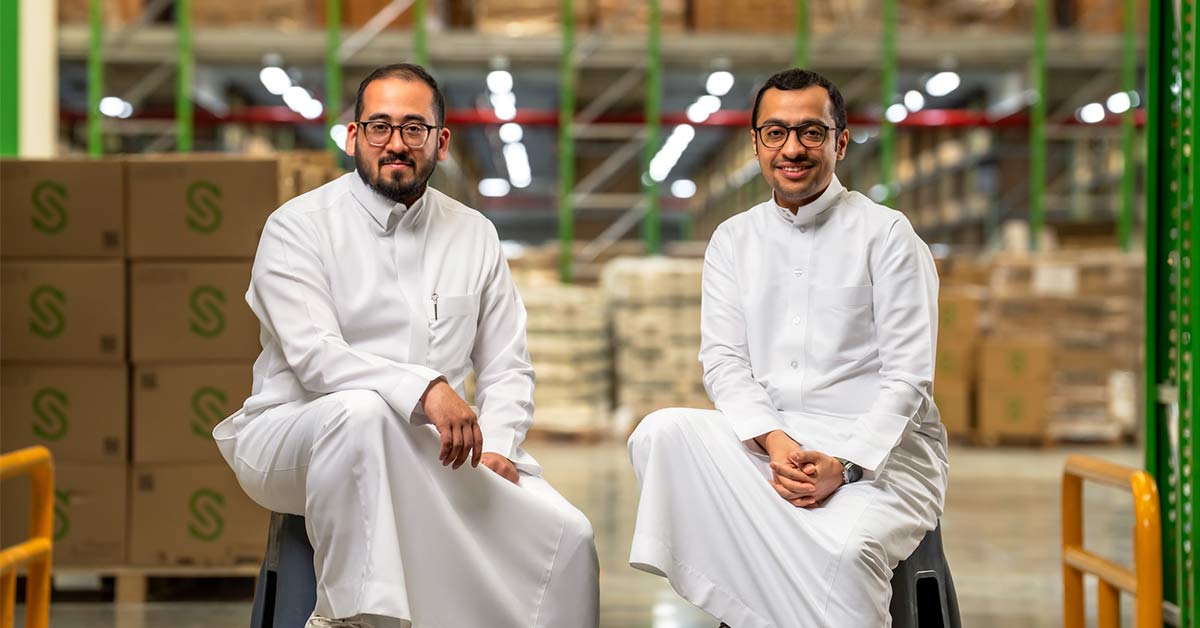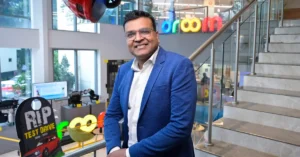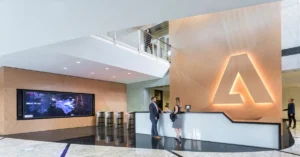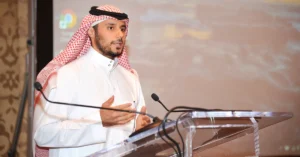- Salasa’s $30 million funding round is a milestone that spotlights the urgent need for smarter e-commerce logistics in Saudi Arabia.
- Saudi e-commerce is booming — up 25% YoY in 2024 — but merchants still grapple with last-mile delays, fragmented courier systems, and customs bottlenecks.
- Salasa’s “merchant OS” model integrates AI forecasting, multi-carrier orchestration, and bonded-zone logistics, giving SMEs enterprise-grade tools.
- Vision 2030’s logistics push — bonded zones, paperless customs, and liberalized ownership — is creating rare structural tailwinds for fulfillment startups.
- The big play: whoever builds the orchestration layer fastest could control the “default operating system” for Gulf-wide e-commerce trade flows.
Earlier this month, Salasa, a Riyadh-based e-commerce fulfillment and logistics startup, closed a $30 million Series B round led by Artal Capital, with participation from Wa’ed Ventures, and existing investors: Saudi Venture Capital Company (SVC), 500 Global (formerly 500 Startups), and Alsulaiman Group. The latest development follows Salasa’s $8.5 million Series A funding round in 2020, marking over four years of growth and evolution.
On the surface, it’s yet another growth-stage funding round in a Middle East startup scene that has grown accustomed to headline deals. But beneath the headline lies a strategic inflection point: Saudi Arabia’s e-commerce market is maturing faster than its logistics stack can handle, and Salasa is betting that it can fill the orchestration void — the space between fragmented carriers, warehouses, and merchant storefronts.
Inside Salasa’s Model
Founded in 2016, Salasa started by helping small merchants plug into warehousing and shipping services. Over time, it evolved into what it calls a “merchant operating system.“
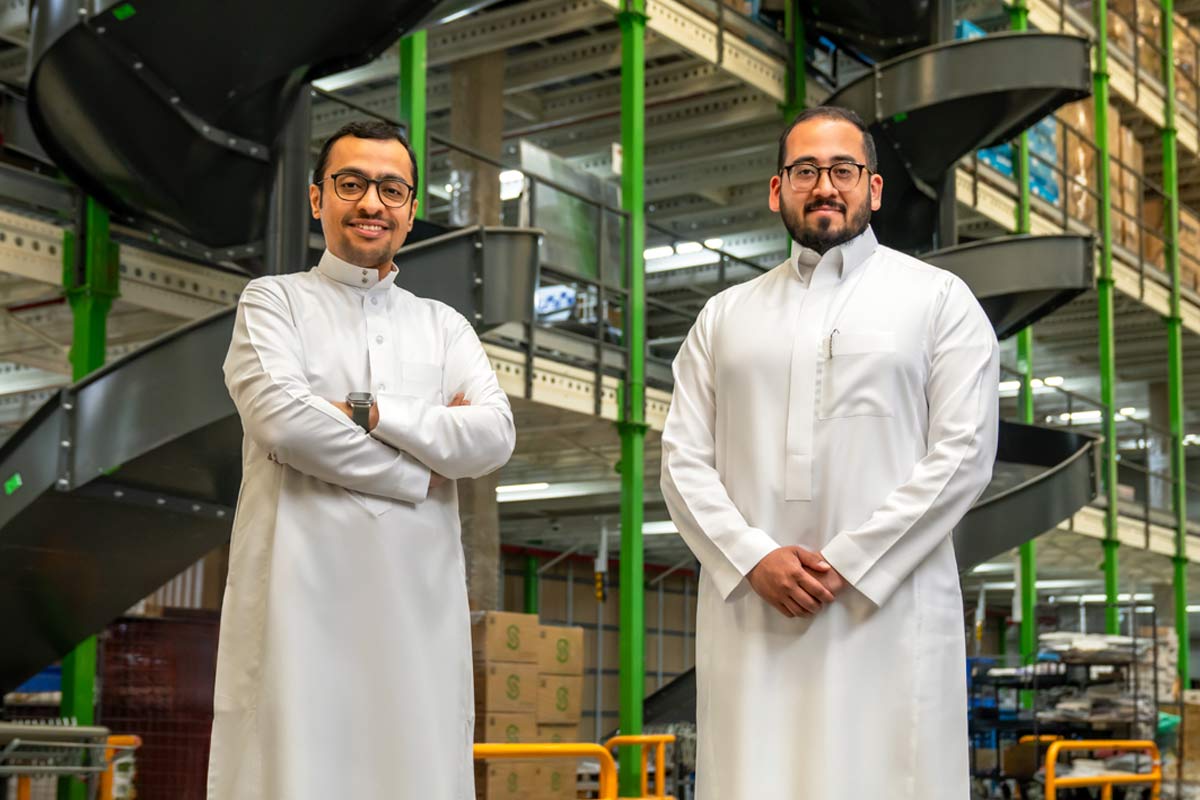
Core Offerings
- AI-powered demand forecasting: Predictive tools to optimize stock placement across multiple warehouses.
- Multi-carrier orchestration: A unified dashboard to select among 40+ courier partners, auto-generate labels, and route orders dynamically.
- Cross-border enablement: Access to bonded-zone logistics at Riyadh’s Special Integrated Logistics Zone, allowing duties to be deferred until goods are sold.
- Seamless integrations: Deep ties with e-commerce enablement platforms like Salla, Zid, Shopify, Amazon, and Trendyol, enabling merchants to avoid overselling or misallocating stock.
This suite gives small and mid-sized merchants access to enterprise-grade logistics, without needing to negotiate separately with couriers or customs.
Policy Tailwinds: Riyadh Wants a Global Logistics Hub
The timing of Salasa’s growth is not accidental. Saudi Arabia’s Vision 2030 program earmarks logistics as a strategic growth pillar, aiming to transform the Kingdom into a global transport and trade hub.
Key developments include:
- Special Integrated Logistics Zone (SILZ): Located near Riyadh airport, the SILZ offers tax incentives, 100% foreign ownership, and duty deferment on re-exported goods.
- Customs modernization: Paperless clearance and bonded-zone permissions are enabling cross-border fulfillment models that were previously impractical.
- Investment push: The National Transport and Logistics Strategy (NTLS) targets increasing the sector’s contribution to GDP to 10% by 2030.
For startups like Salasa, these shifts create an opening to embed policy into product design. By being among the first movers in bonded-zone logistics, Salasa positions itself to intermediate trade flows not only for Saudi merchants but also for international sellers targeting the Gulf.
Competitive Landscape: Why Orchestration Matters
Saudi Arabia is not short on couriers. Incumbents like Aramex, SPL, DHL, and SMSA dominate last-mile and express delivery, while regional 3PL startups are scaling up warehousing and fulfillment.
But the market gap is not in trucks or warehouses — it’s in coordination. Merchants often end up juggling multiple carriers manually, reconciling spreadsheets, and firefighting delivery delays.
Salasa’s proposition: act as the middleware layer. Instead of merchants negotiating separately, Salasa offers an abstraction layer that hides operational chaos while capturing data to optimize routes and costs.
If executed well, this creates defensible network effects:
- More merchants > more shipping data > better AI forecasting > lower delivery failures > more merchants.
That flywheel, more than warehousing capacity, is where long-term advantage lies.
The market and policy context
- Saudi Arabia is the largest consumer market in the Gulf, with a population of over 35 million and around 99% internet penetration rate – one of the highest in the world – making online shopping mainstream.
- A 2024 report by Fitch Solutions revealed that the Buy Now-Pay Later market in Saudi Arabia grew by 67% in 2023, highlighting the increasing demand for alternative payment methods among younger, tech-savvy consumers.
- In 2024, Saudi Arabia played a key role in driving a 44% increase in e-commerce orders in the MENA region during the festive season.
- According to the Saudi Central Bank (SAMA), e-commerce sales using Mada cards reached approximately SAR 197.42 billion (around $52.64 billion) in 2024, marking a year-on-year growth of 25.82%. Also, Cash-on-delivery is in structural decline, aided by digital wallets and BNPL.
- The Ministry of Commerce reported over 40,000 new e-commerce businesses registered in Q4 2024 alone.
- Bonded zones: The government’s Special Integrated Logistics Zone near Riyadh Airport enables deferred duty models, a boon for cross-border sellers. Salasa is among the early operators to build processes on this foundation.
Yet, despite the demand, merchants still face a thicket of operational hurdles: unreliable last-mile delivery, delayed customs clearance, disjointed courier integrations, and limited visibility across channels.
This is where Salasa positions itself, not just as another 3PL (third-party logistics provider), but as an AI-driven platform that unifies storage, delivery, and cross-border trade into one software layer.
Why Investors Are Betting Now?
For investors, the thesis is clear: Saudi Arabia’s consumer market is growing faster than its logistics sophistication. Whoever builds the orchestration layer first could become the default operating system for Gulf e-commerce.
This is not just a Saudi story — it’s a regional play. Neighboring markets (UAE, Kuwait, Bahrain) face similar fulfillment gaps, and the bonded-zone model could extend to non-Saudi merchants wanting GCC access without setting up local warehouses.
